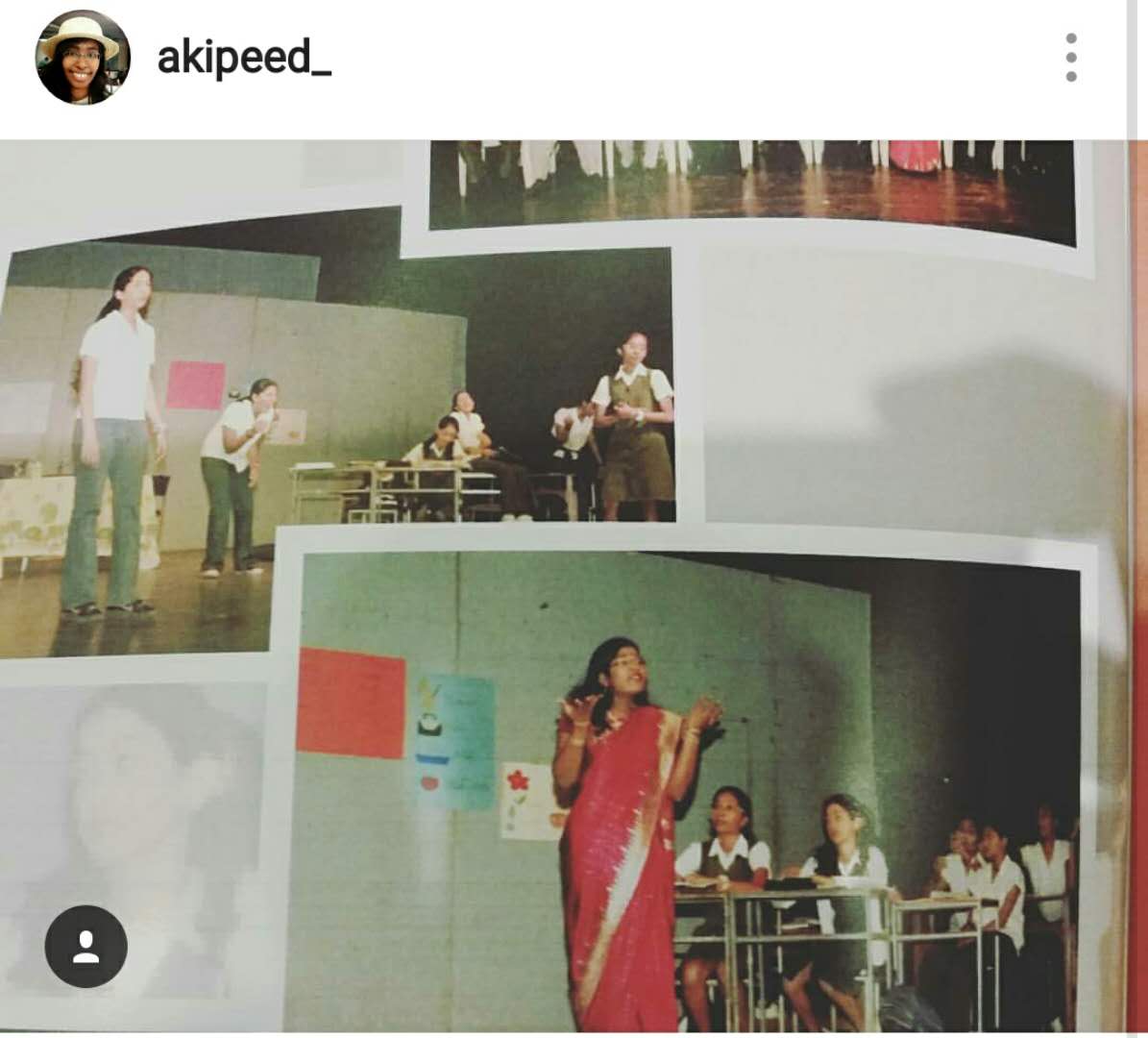via Daily Prompt
From one of my previous post, you may have understood that I am Mauritian who is of Indian descent. I don’t really know who was the first of my ancestors who came to Mauritius from India, and I don’t even know from which city they came from but one thing is for sure, they came from the South, from Andhra Pradesh.
Since I was a child, I have been going to the temple for weekly prayers. I have taken Telugu classes. I can probably read Telugu more than I can speak it. I have been participating in cultural shows, reciting poems in Telugu, learning Kuchipudi; a traditional classical Indian dance form, learning both bhajans (songs for the deities), and Telugu movie songs, and participating in the National Telugu Drama Festival in Mauritius.
 Credits: Augustus Binu – wiki commons
Credits: Augustus Binu – wiki commons

The pictures are from my first performance at the national Telugu drama festival in 2010 in Mauritius. It was the first time that a bunch amateur actresses (including me), tried acting and we ended up winning the first prize in the National Drama Festival in 2010.
Credits : Dr. Reddy Lutchmoodoo
My first ever performance on stage though was at the age of 8, and I still clearly remember it was a Vemana poem, which I presented in front of about 300 or more people.
“Alpudeppudu palku nadambaramuganu
Sajjanundu palku challaganu
Kanchumrogunattu kanakambu mroguna?
Vishwadhabhirama vinura Vema”
It was terrifying for me as a child. But my father was near the stage, as a support. He, more than my mother (not that my mother didn’t encourage me) has always been the one to encourage me to take an interest in the Telugu language and culture. He has been the one to accompany me to cultural events and to support me throughout. He was and still is proud of his culture.
So, obviously, I have been influenced a lot by the South Indian culture (if this is the appropriate way to say it). I love wearing the traditional dresses, helping make flower garlands for the gods, and goddesses, making muggulu (rangolis) and celebrating the thousands (just kidding) festivals we have in a year.
The thing I love the most though are the instruments that are played during the festivals and weddings, and other events.
Credits(Nadaswaram): Otrajesh
Credit(Thavil): Otrajesh
I love the sound of the nadaswaram, and the thavil together. I get goose bumps when I hear the different sounds together. The nadaswaram is a wind instrument while the thavil is a percussive instrument. The beats of the thavil are so powerful that their beats and my heartbeats become one. Both insruments are played together to create a wonderful atmosphere be it at a wedding or a prayer or a festival.
In China, there is very little opportunity to show my love for the Telugu language and culture but technology (youtube) helps me stay in touch with the things I like. Luckily for me, there is an Indian restaurant here in Suzhou called Indian at the Cross, where they always play Hindi, Telugu, and Tamil songs. The most interesting part is that some people there speak Telugu. During the weekend I went there and I was happy to speak the little Telugu that I can speak and to enjoy some Telugu songs.

Have a great Monday!




